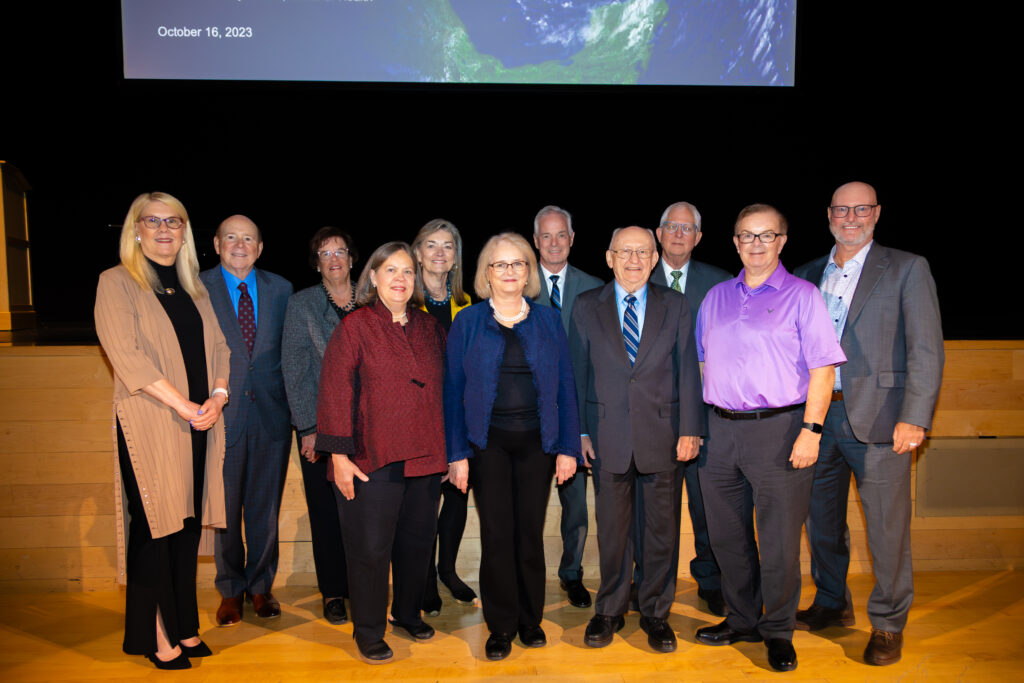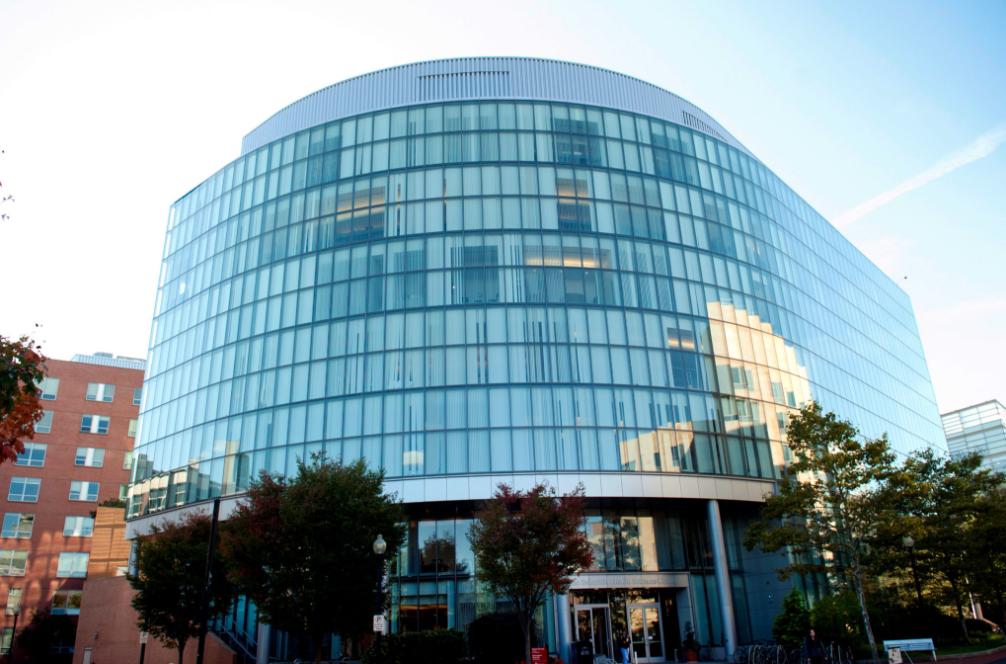Working directly with patients in clinical settings isn’t the only way to put a graduate degree in psychology to good use. Research careers in psychology shape the direction of therapeutic strategies and public policies surrounding mental health. To effectively leverage findings in human behavior, several industries need researchers who can observe patients and identify behavioral patterns that affect mental well-being and decision-making.
This has led to an increased demand for psychology professionals. In fact, job growth in psychology careers is expected to increase six percent between 2022 and 2032—which is double the average growth for all other occupations.
Even with this job growth, many students still might be wondering: Is a master’s degree in psychology worth it?
Is a Master’s Degree in Psychology Worth It?
A master’s degree in psychology is an excellent investment for those looking to advance their education. While a bachelor’s degree in psychology can offer an adequate foundation of psychological methods and theories, many students need a master’s degree program to help identify what career is right for them.
“Students need more exposure to a graduate-level curriculum to really refine their goals in a certain area of psychology with the help of faculty advisors to help them shape that,” says Christie Rizzo, Associate Professor of Applied Psychology at Northeastern’s Bouvé College of Health Sciences.
Whether students plan to become psychologists, counselors, or pursue alternative careers in psychology, they need a strong foundation in behavioral theories. A master’s program provides evidence-based training that can be applied to real situations.
Some advantages students can expect from a psychology master’s degree program include:
- Preparation for doctoral programs
- Flexibility in career paths
- Increased earning potential
- Research opportunities
- Skills development
Another key advantage is the access to expert mentorship. “It’s not just about the coursework,” Rizzo says. “It’s also the personalized advising that they get to help move them along.”
Experienced instructors can offer students broader knowledge of the professional options available, guide their interests, and provide opportunities to learn about developing research.
One possible job outcome these programs can highlight is careers in research. For example, a master’s degree program in applied psychology—the practical application of psychological principles and theories—can help students transfer skills from psychology to industries and job titles that are focused on research evaluation.
“Considering the different ways we’re taking psychology principles and applying them in the real world,” Rizzo says. “We need to know how to evaluate the effectiveness of implementation strategies. For that reason, the research component is incredibly important when studying applied psychology.”
If you’re interested in earning a master’s degree in applied psychology, here’s an overview of the industries hiring professionals with this educational background, as well as the top research careers in psychology that may be a good fit for you.
Top Industries in Psychology
Research careers in psychology can be rewarding for professionals who are passionate about the experimental and investigative aspects of studying behavior. Whether the goal is to work for nonprofits, public health agencies, or academic institutions, researchers are able to approach this discipline from many angles—ranging from observational studies to data analysis.
If you’re unsure of where your interests lie, here are some of the top industries hiring research-related psychology professionals.
Nonprofit Organizations
Nonprofits like prevention research centers are among the most common employers for people with psychology degrees. These nonprofit organizations study the risk factors for specific types of behavior or mental health challenges and develop strategies to address these issues on an individual and community level. Through proactive interventions, these organizations strive to reduce negative health outcomes as much as possible.
Local, State, and Federal Government
Government agencies also have research-related jobs in psychology at the local, state, and federal level. Similar to nonprofits, they serve public needs and evaluate communities that require the most support. Child welfare services, community organizations, housing assistance, and health advocacy programs are just a few examples of sectors in government that provide job opportunities for psychology graduates.
Public Health and Healthcare
Public health departments and private healthcare organizations employ psychology professionals to evaluate trends and demographic factors to understand how to create successful health policies. These research-focused careers also aid in the development of public outreach technology, using data and digital tools to determine the best ways to gather public health information and communicate important initiatives to the community.
Education
Research professionals who leverage psychology principles frequently work in schools, colleges, and universities to explore emerging ideas in the field. They identify obstacles in the industry and challenges affecting specific populations, using evidence-based practices to design research studies. Academic environments also offer the opportunity to conduct individual research, instruct other professionals, and publish ground-breaking studies in their given field.
5 Research Careers in Psychology
These industries only provide a snapshot of the types of careers that are available to professionals with a master’s degree in psychology. Here’s an overview of the most common research careers that leverage psychology.
1. Data Analyst
Annual Average Salary: $78,516
Data analysts in psychology research fields oversee databases and assure the quality of data collection, management, and evaluation practices. They leverage psychology principles to interpret and predict user behavior by understanding cognitive biases and decision-making patterns. They also apply psychological frameworks to design effective data visualizations and user interfaces, optimizing data communication within an organization to promote better decision-making.
2. Director of Research
Annual Average Salary: $148,216
A director of research oversees the operations for an institution or psychology department. They coordinate research projects, secure funding, supervise staff, and decide how to allocate resources. They utilize psychology to design experiments and surveys that account for human behavior and cognitive biases, ensuring the validity and reliability of the collected data. In addition, it can guide the development of research methodologies, enhancing the understanding of human motivations and reactions in their studies.
3. Market Research Analyst
Annual Average Salary: $68,230
Market research analysts study consumer and community behavior to aid in the development of products and services. Whether they work in psychology or consumer industries, market research analysts investigate the choices, perspectives, barriers, and behavioral patterns of specific audiences. Using surveys, studies, trend assessments, and data reporting, analysts can identify strategies to improve community outreach and communication.
4. Prevention Specialist
Annual Average Salary: $59,748
Prevention specialists work in prevention centers conducting research on specific aspects of behavioral or psychological health. For example, they might study the most effective approaches to drug prevention or research the best interventions to support families in financial distress. Their research enables organizations to develop programs and policies that reduce risk factors and address emerging issues as early as possible.
5. Research Coordinator
Annual Average Salary: $68,567
Research coordinators oversee individual research projects, ensuring they comply with industry regulations and organizational objectives. Coordinators are project managers, and directly report to a research director. They are in charge of making sure a project runs smoothly by supervising the research team, budget, data, public outreach, and all other project activities.
Take the First Step Toward a Psychology Career in Research
For professionals who want options, earning a master’s degree in applied psychology is one of the most advantageous ways to build a flexible career. A graduate degree allows you to pursue a career focused on a variety of specialities research, counseling, or even clinical psychology. However, this program ensures you have the right skills to take on almost all these roles.
“When students come out of a counseling-focused master’s degree, they don’t have that level of skill,” Rizzo says. “This is because the focus of those programs is asking students ‘How can you be an effective counselor? And how much research knowledge do you need to understand the most effective treatments?’ But it does not touch on the broader set of research skills.”
Northeastern University’s MS in Applied Psychology is specifically designed to prepare graduates for research careers in psychology. Graduates learn to analyze trends and statistics to gain insights and communicate them to a wider industry.
If you’re interested in finding out more about this program, contact an admissions counselor to explore your options.
Ready to map your path? Navigate your psychology career here.




